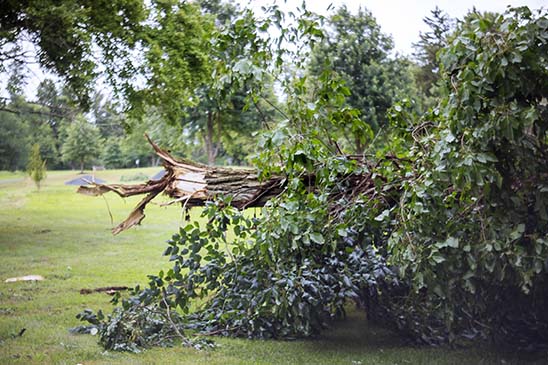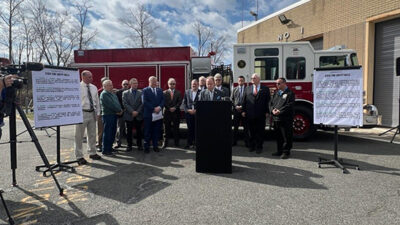
Be Prepared
Hurricane Season is upon us. The National Oceanic and Atmospheric Administration (NOAA) Climate Prediction Center is forecasting another above-normal Atlantic hurricane season. However, they are thankfully not anticipating the historic level of storm activity we saw in 2020.
NOAA’s is predicting 13 – 20 Named Storms, 6 – 10 of which will be Hurricanes and between 3 – 5 of those will be Major Hurricanes. Hurricane season begins on June 1st and continues through November 30th, and I am urging all of you to be prepared for this season by reviewing your emergency plans and stocking up on necessary supplies.
While it has been several years since we have experienced a strong storm, our area has seen the devastating effects of hurricanes Floyd, Irene and Sandy in the past. I ask you all to be diligent as we enter the height of hurricane season and consider purchasing a generator for your home if you don’t already have one.
After an emergency, like a hurricane, help will be on the scene, but they cannot reach everyone right away. Basic services such as electricity, gas, water, sewage treatment, and telephones may be cut off. You could get help in hours, or it might take days. Being well prepared means having your own food, water, and other supplies to last for at least 72 hours.
Our Office of Fire and Emergency Services stresses the importance of individual preparedness and is sharing this precautionary advice:
Put together an emergency supply kit. There are some basic items that everyone needs:
- One gallon of water per person, per day and food for you and your family for at least three days. Use food that does not need to be refrigerated or cooked, such as peanut butter and ready-to-eat canned meats, fruits, and vegetables.
- Special supplies you and your family need, such as: Infant formula, bottles, diapers, wipes and diaper rash cream; at least three day’s supply of medicines or medical treatments; important documents; a copy of prescriptions, dosage and treatment information; non-prescription medications such as pain relievers, anti-diarrhea medication, antacids or laxatives; copies of insurance cards, and information on equipment or life-saving devices you use; eyeglasses and contact lens solution; hearing aids and batteries; wheelchair batteries; and oxygen.
- Supplies for your pet, such as pet food, water, medicines, and any special supplies your pet may need.
- Battery-powered radio, flashlight, extra batteries, and first aid kit.
- Since Spring of 2020, the Centers for Disease Control and Prevention (CDC) has recommended people include additional items in their kits to help prevent the spread of COVID-19, flu, and other viruses: cloth face coverings (for everyone ages 2 and above), soap, hand sanitizer, and disinfecting wipes to disinfect surfaces.
For more information on how to build a complete emergency kit, visit https://www.ready.gov/kit.Make a family emergency plan:
- Your family may not be together when an emergency strikes so plan ahead.
- Learn your evacuation zone and make and practice a family emergency plan for how you will contact family members and what you will do in different situations.
Personal Safety:
- Plan to stay with family if possible. If you must go to a community or group shelter, remember to follow the latest guidelines from the Centers for Disease Control and Prevention (CDC) to protect yourself and your family from COVID-19.
- Be prepared to take cleaning items with you like soap, hand sanitizer, disinfecting wipes, or general household cleaning supplies to disinfect surfaces you may need to touch regularly.
- Maintain at least 6 feet between you and persons not part of your immediate family while at the shelter [by avoiding crowds or gathering in groups] as much as possible.
- Anyone over two years old should use a cloth face covering while at these facilities.
- Only use portable generators outdoors and away from windows.
Be informed:
-
During an emergency, information will be available on the radio, TV, and newspapers and online at the Rockland County website www.rocklandgov.com, Facebook www.facebook.com/rocklandgov, and Twitter https://twitter.com/rocklandgov.
These websites can all be accessed on your smartphone even if you lose electricity. In addition, notifications will be sent via the NY-ALERT system once you register to receive e-mails or text messages.
If you have specific questions, you can contact the Office of Fire and Emergency Services at 845-364-8800.
The time to prepare for a Hurricane or any possible disaster is right now, before it becomes an emergency. You and your family should take this time to determine what you need if you have to shelter-in-place without power or if you have to evacuate your home on short notice. It’s important to be ready for whatever Mother Nature is going to throw at us.



